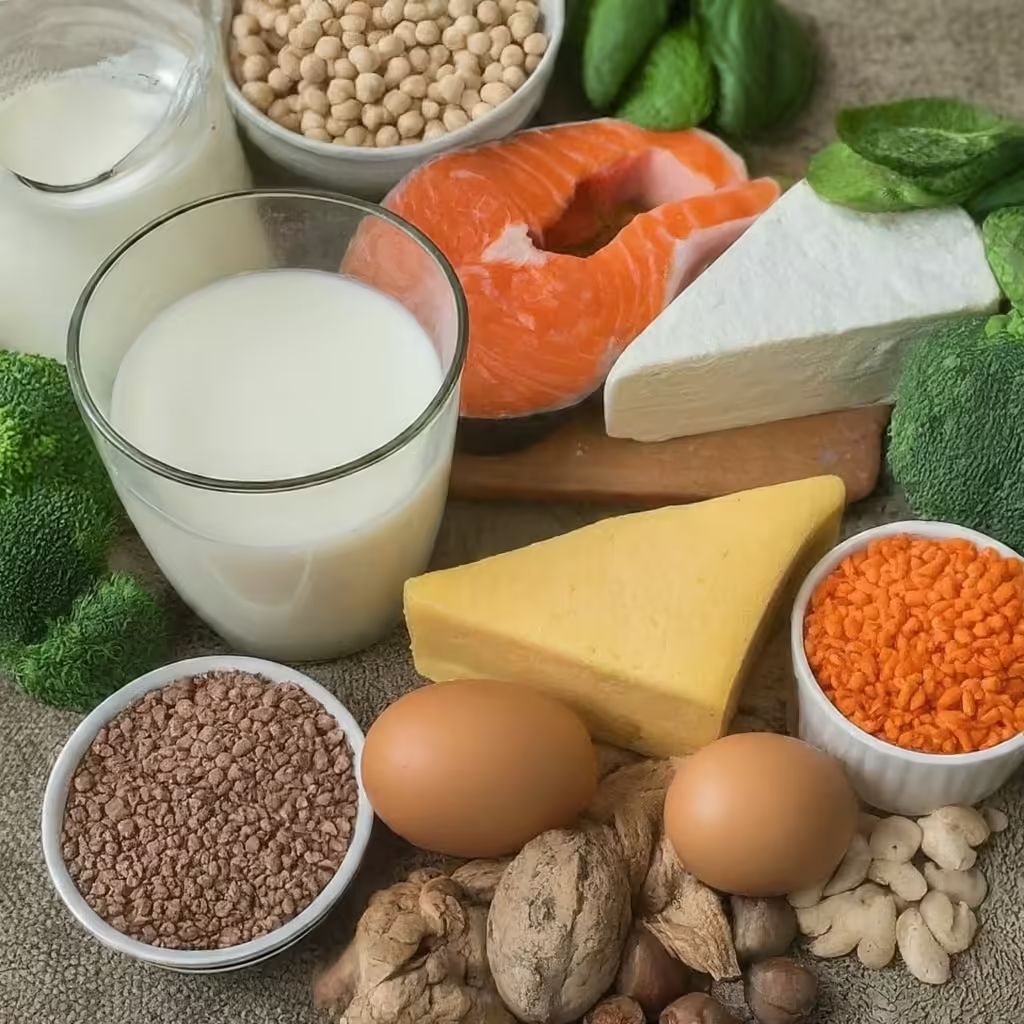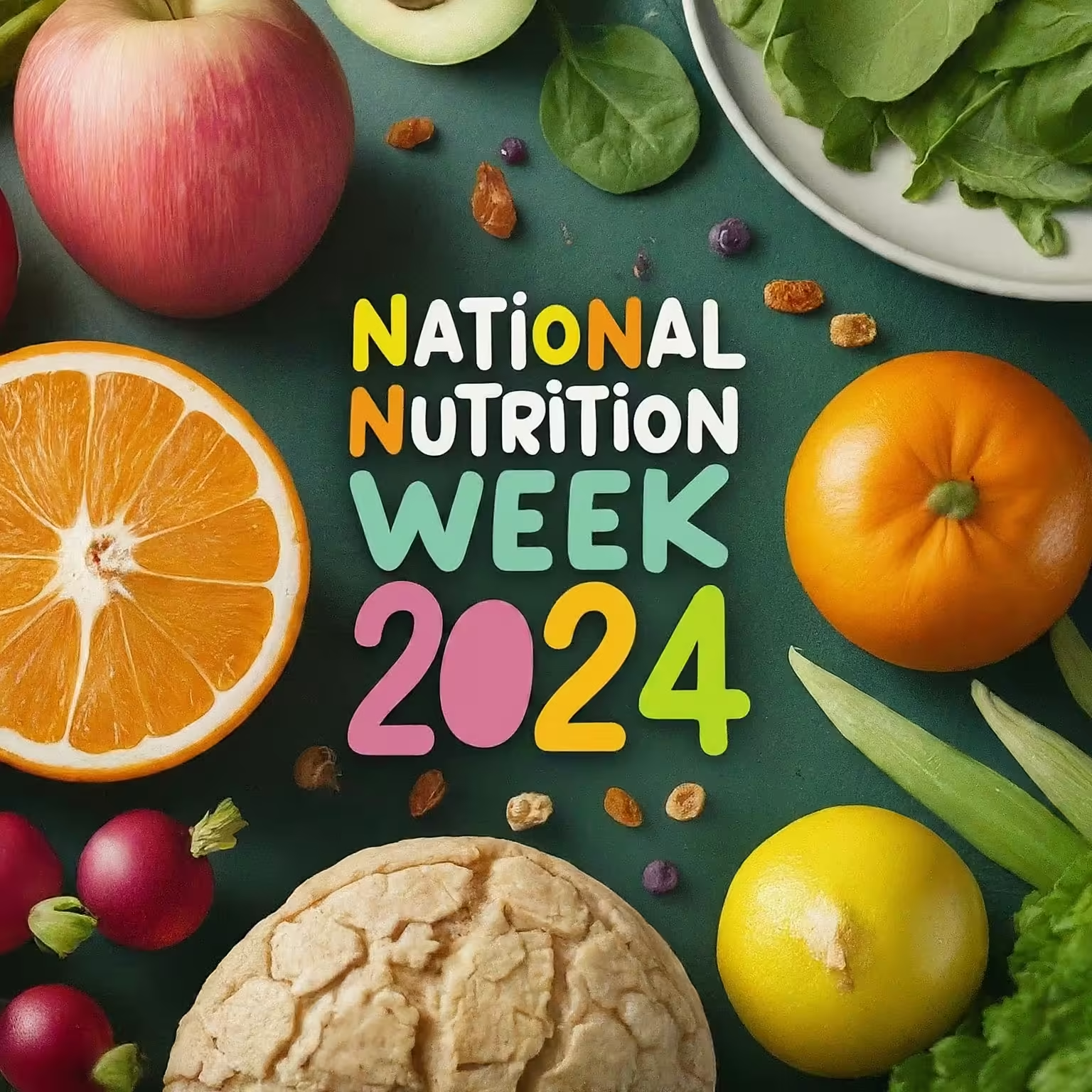National Nutrition Week, celebrated annually from the 1st to the 7th of September, is an initiative that headlines the importance of a well-balanced diet for the health and well-being of people across the globe. This year’s theme, ‘Nutritious Diets for Everyone,’ resonates strongly with the United Nations’ Sustainable Development Goals (SDGs), emphasizing the need for inclusive and sustainable nutrition for all.
The Importance of National Nutrition Week
National Nutrition Week is not just a celebration; it’s an educational platform that aims to raise awareness about the significance of nutrition in our daily lives. National Nutrition Week event highlights the pivotal role that a nutritious diet plays in maintaining good health, preventing diseases, and promoting longevity. With the rising prevalence of lifestyle-related health issues such as obesity, diabetes, and heart disease, the focus on nutrition has never been more critical.
2024 National Nutrition week Theme: ‘Nutritious Diets for Everyone
The 2024 theme, ‘Nutritious Diets for Everyone,’ is a call to action for governments, communities, and individuals to ensure that nutritious food is accessible to all. This theme aligns with the UN’s goal to end hunger, achieve food security, improve nutrition, and promote sustainable agriculture. The message is clear: a healthy diet should not be a privilege for the few but a basic right for everyone.

What is a Healthy and Nutritious Diet According to WHO?
The World Health Organization (WHO) defines a healthy diet as one that meets an individual’s nutritional needs through a balanced intake of food. According to WHO, a nutritious diet should include:
- Fruits and Vegetables: A diverse intake of fruits and vegetables is essential. WHO recommends at least 400 grams (or five portions) of fruits and vegetables per day to reduce the risk of chronic diseases.
- Whole Grains: Foods such as whole grain bread, brown rice, and oats are rich in fiber and essential nutrients. WHO advises that at least half of the grains consumed should be whole grains.
- Protein Sources: A healthy diet includes lean meats, poultry, fish, eggs, legumes (beans and lentils), nuts, and seeds. These provide essential amino acids necessary for body function.
- Dairy or Dairy Alternatives: These foods are rich in calcium, which is vital for bone health. WHO suggests incorporating low-fat or fat-free options into daily diets.
- Healthy Fats: Unsaturated fats, found in foods like avocados, nuts, and olive oil, are recommended over saturated fats. Trans fats, often found in processed foods, should be avoided.
- Limited Sugar and Salt: WHO advises reducing the intake of free sugars and salt to lower the risk of obesity, diabetes, and cardiovascular diseases.
The Role of Nutrition in Sustainable Development
Nutrition is a cornerstone of sustainable development. The United Nations’ SDGs include a specific goal (Goal 2) to end hunger, achieve food security, improve nutrition, and promote sustainable agriculture by 2030. Good nutrition is essential not only for individual health but also for the well-being of communities and nations. Proper nutrition contributes to economic productivity, reduces healthcare costs, and supports the sustainable use of natural resources.
Tips for Healthy Eating
Incorporating a nutritious diet into daily life doesn’t have to be complicated. Here are some practical tips to help you make healthier choices:
- Plan Your Meals: Planning meals ahead of time can help ensure you include a variety of foods that meet your nutritional needs. Aim to balance your plate with protein, whole grains, and plenty of fruits and vegetables.
- Choose Whole Foods Over Processed: Whole foods like fruits, vegetables, grains, and lean proteins are less likely to contain added sugars, unhealthy fats, and sodium compared to processed foods.
- Watch Your Portions: Even healthy foods can lead to weight gain if consumed in large quantities. Pay attention to portion sizes, especially when eating out.
- Stay Hydrated: Water is essential for overall health. Aim to drink at least 8 glasses of water a day. Avoid sugary drinks and limit the intake of caffeinated beverages.
- Snack Smart: Choose snacks that provide nutritional benefits, such as fruits, nuts, yogurt, or whole-grain crackers, rather than chips or sweets.
- Limit Sugary Foods and Beverages: High sugar intake is linked to obesity, diabetes, and other chronic diseases. Choose natural sources of sugar, like fruits, and limit the consumption of sweets and sugary drinks.
- Eat Mindfully: Pay attention to what you eat and savor each bite. This can help you enjoy your food more and avoid overeating.
- Incorporate Plant-Based Meals: Adding more plant-based meals to your diet can boost your intake of essential nutrients and reduce your environmental impact.
Challenges and Solutions
While the goal of ‘Nutritious Diets for Everyone’ is noble, several challenges need to be addressed to make it a reality:
- Economic Barriers: For many, nutritious food is unaffordable. Governments and organizations need to work together to make healthy food accessible to low-income populations through subsidies, education, and policy changes.
- Food Deserts: In some areas, especially in low-income neighborhoods, access to fresh fruits and vegetables is limited. Increasing the availability of fresh produce in these areas through community gardens, farmers’ markets, and improved supply chains is essential.
- Cultural Barriers: Dietary habits are deeply rooted in culture. Education and awareness campaigns need to respect cultural practices while promoting healthier choices.
- Misinformation: With the rise of social media, misinformation about diets and nutrition is rampant. Reliable, evidence-based information needs to be widely disseminated to counteract myths and promote healthy eating.
The Impact of a Nutritious Diet on Health
The benefits of a nutritious diet extend beyond just physical health. Here are some key impacts:
- Physical Health: A nutritious diet can help prevent chronic diseases such as heart disease, diabetes, and cancer. It also supports healthy growth and development in children and maintains a strong immune system.
- Mental Health: Nutrition plays a vital role in mental well-being. Diets rich in fruits, vegetables, whole grains, and omega-3 fatty acids are associated with a lower risk of depression and cognitive decline.
- Quality of Life: Eating a balanced diet enhances energy levels, improves sleep, and contributes to overall well-being, allowing individuals to lead more active and fulfilling lives.
National Nutrition Week 2024 is more than just an awareness campaign; it is a call to action for everyone to take steps toward better nutrition. Whether you are an individual looking to improve your diet, a parent ensuring your children eat healthily, or a policymaker working to make nutritious food accessible to all, there is something everyone can do.
As we celebrate National Nutrition Week 2024, let’s commit to the theme ‘Nutritious Diets for Everyone’ and strive towards a future where every individual has access to the nutrients they need to thrive. By promoting healthy eating, addressing the challenges to nutritious diets, and supporting sustainable practices, we can contribute to the global effort of achieving food security and better health for all.
Let this week serve as a reminder that good nutrition is not just a personal choice but a shared responsibility that impacts the well-being of our entire planet.


[…] of a living spiritual teacher. With millions of followers worldwide, the organisation emphasizes meditation, ethical living, and selfless service as paths to spiritual […]